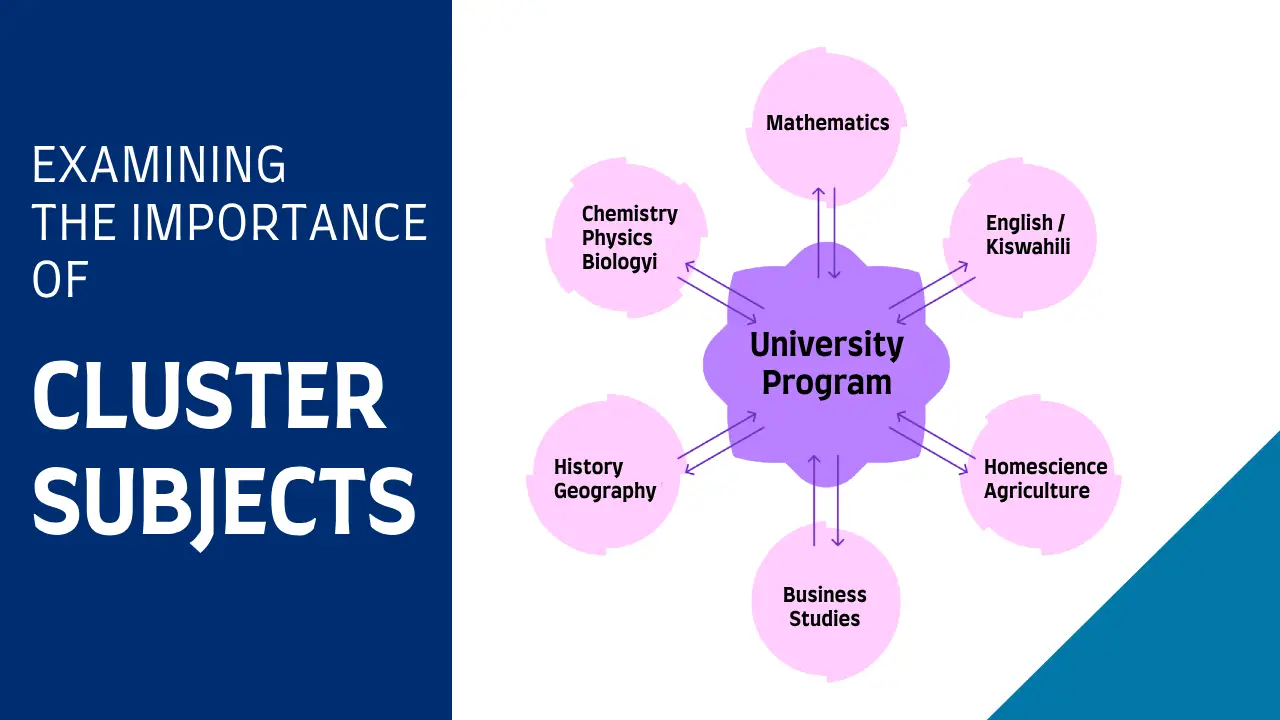My Future
Factors to Consider While Choosing a Career Path in Kenya
Choosing a career path is a significant decision that requires careful consideration of various factors including personal interests, skills, educational requirements, job availability, work-life balance, family influences, economic conditions, personal values, and available resources for guidance. By taking the time to reflect on these aspects and conducting thorough research into potential careers, high school graduates in Kenya can make informed decisions that lead to fulfilling professional lives.
By Samuel |
Published on 11-Dec-2024

Choosing a career path is one of the most significant decisions high school graduates face as they transition into adulthood. In Kenya, where the job market is rapidly evolving, making informed choices is crucial for future success. This article explores the various factors that should be considered when selecting a career path, providing insights to help high school graduates navigate this important decision.
Personal Interests and Passions
Understanding your interests and passions is fundamental when choosing a career. Ask yourself questions like, "What do I enjoy doing?" or "What activities make me lose track of time?" Pursuing a career aligned with your passions can lead to greater job satisfaction and fulfillment. For instance, if you have a passion for helping others, careers in healthcare, social work, or education might be suitable options. Engaging in self-assessment can help clarify what truly excites you and guide your career choices effectively.
Skills and Talents
Your natural abilities and skills play a crucial role in determining which career paths may be suitable for you. Consider both your hard skills (technical abilities) and soft skills (communication, teamwork). For example, if you excel in mathematics and analytical thinking, fields such as engineering or finance could be a good fit. Conversely, if you possess strong interpersonal skills, careers in hospitality or human resources might be more appealing. Conducting a skills inventory can help identify areas where you excel and align them with potential career options.
Educational Requirements
Different careers come with varying educational requirements. Some professions require advanced degrees or specialized training, while others may offer entry-level positions with only a high school diploma. Research the educational pathways for your desired careers to understand what qualifications are necessary. For example, pursuing a degree in medicine requires extensive education and training compared to entering the workforce directly in retail management. Understanding these requirements can help you plan your educational journey effectively.
Job Availability and Market Demand
When choosing a career path, it's essential to consider the job market's current trends and future projections. Research industries that are experiencing growth and demand for skilled workers. In Kenya, sectors such as information technology, healthcare, engineering, and renewable energy are expanding rapidly. Conversely, some fields may experience saturation or decline due to technological advancements or changing consumer preferences. Staying informed about job availability can help ensure that your chosen career path offers viable employment opportunities.
Work-Life Balance
Work-life balance is increasingly important for many individuals when selecting a career path. Consider how different professions align with your lifestyle preferences and personal commitments. Some careers may demand long hours or frequent travel, while others may offer more flexible schedules. For instance, jobs in academia may provide more predictable hours compared to roles in emergency services or healthcare that require shift work. Reflecting on your priorities regarding work-life balance can help you choose a career that aligns with your lifestyle.
Career Advancement Opportunities
The potential for growth within a chosen profession is another critical factor to consider. Investigate whether there are clear pathways for advancement in your desired field. Some careers offer structured promotion opportunities based on performance and experience, while others may have limited upward mobility. For example, careers in corporate management often provide clear advancement tracks compared to roles in creative industries where progression might be less defined. Understanding the potential for career advancement can influence your long-term satisfaction and success.
Influence of Family and Peers
Family expectations and peer influences can significantly impact your career choices. In many cases, parents may have specific aspirations for their children based on their own experiences or values. While it’s essential to consider their perspectives, it’s equally important to prioritize your interests and goals when making decisions about your future. Engaging in open discussions with family members about your aspirations can help bridge any gaps between their expectations and your desires.
Economic Factors
Economic conditions can also influence career choices significantly. Consider the financial implications of pursuing certain careers—both in terms of potential earnings and the costs associated with education or training programs. Research average salaries within various fields to understand what financial stability looks like post-graduation. Additionally, consider whether the investment in education aligns with the expected return on investment (ROI) in terms of salary potential.
Personal Values and Ethics
Your personal values should play an integral role in shaping your career decisions. Reflect on what matters most to you—whether it’s contributing positively to society, working in an environmentally sustainable field, or achieving financial success—and seek out careers that align with these values. For example, if environmental sustainability is important to you, consider careers in conservation biology or renewable energy.
Availability of Career Guidance Resources
Finally, take advantage of available resources for career guidance within schools or community organizations. Many high schools offer counseling services that provide insights into various career paths based on students' interests and academic performance. Engaging with mentors or professionals already working in fields of interest can also provide valuable insights into what those careers entail.
Choosing a career path is a significant decision that requires careful consideration of various factors including personal interests, skills, educational requirements, job availability, work-life balance, family influences, economic conditions, personal values, and available resources for guidance. By taking the time to reflect on these aspects and conducting thorough research into potential careers, high school graduates in Kenya can make informed decisions that lead to fulfilling professional lives.
As you embark on this journey of self-discovery and exploration of career options, remember that it’s okay to seek guidance from teachers, family members, or professionals who can provide insights into different fields of work. For further reading on factors influencing career choices among students in Kenya:










